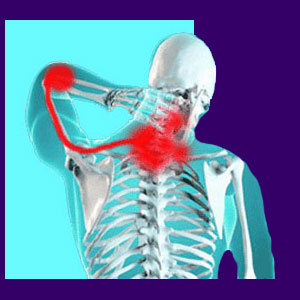
Pinched nerve symptoms is a topic close to my heart, since I have been diagnosed with so many different possible compressive neuropathy issues over my lifetime and have suffered such a incredible diversity of expressions in relation to these diagnostic suspicions. In fact, the truly huge assortment of symptoms I have endured was one of the factors which drove me to begin my own extensive research into the reasons why chronic pain actually exists.
In the course of 25 years and counting, I have learned much about pinched nerves, including their causes, symptoms and prognoses. I hope that this article will help to put you on the right path when it comes to separating fact from fiction regarding your own theorized, perceived and actual pinched nerves.
Let’s begin simply. The symptoms of a compressive neuropathy will always depend first on the location of the pinched nerve. These symptoms will also depend on the extent of the compression and the length of time the impairment has existed. Finally, the symptomatic expectation will take into consideration the types of care which have already been provided and the results of these therapy choices.
Typical Pinched Nerve Symptoms
Typical symptoms of pinched nerves might include: local or widespread pain, tingling, weakness and numbness. Usually, the initial feeling experienced is pain. Nerves are extremely sensitive to stimuli and as soon as one is compressed, pain will most likely be the first indication of a problem.
If the compression continues, tingling will usually be next, as the nerve signal is no longer strong. The area of the body served by that nerve will most likely experience pins and needles or possibly a burning sensation.
Continued compression will cause weakness, since the area of the body served by that nerve is no longer getting a solid nerve signal.
Finally, if compression continues, objective numbness will be the usual result.
These are general guidelines and do not represent every possible case of nerve compression. Some acute cases may bypass steps or progress quickly. Some may overlap symptoms, especially when they first occur. However, the progression of symptoms over time does make sense for virtually any truly compressed nerve structure. Symptoms which stagnate at a given point prior to objective numbness usually indicate a possible misdiagnosis of the true causative process.
Pinched Nerve Symptom Controversy
There is much controversy concerning chronic pinched nerve pain. Research has shown that continued compression of a nerve will cause it to stop signaling completely after a short time. The effect of this will be numbness, not lasting discomfort.
Long-term pain caused by a pinched nerve is unlikely. The nerve might be only partially compressed and continues to signal (pain). The other option is that there is a different cause for the symptoms and a second diagnostic opinion should be sought.
The best way to sort out this common and messy problem is to evaluate the condition using a trained spinal neurologist. Demand testing to trace the structures involved and correlate the actual symptoms to the expectations. If something seems amiss, then definitely do not buy into the compression diagnosis until all other possible explanations have been carefully considered.
Chronic Symptoms of Pinched Nerves
It is rare for chronic pain to exist as a result of a completely compressed nerve condition. However, this does not mean that the nerve is not involved in the pain syndrome. There may be another structural or nonstructural explanation of why the nerve is constantly signaling distress.
A common occurrence is pain which is caused by oxygen deprivation of the sensitive nerve tissue. This particular condition can be extremely agonizing, yet is a harmless and reversible process which involves no mechanical compression at all.
Remember that chronic back pain is most commonly blamed on some structural abnormality, yet may exist due to ischemia, disease, infection or some other idiopathic reason, especially when the condition has resisted a variety of appropriate back pain treatment options geared towards targeting the pinched nerve.





